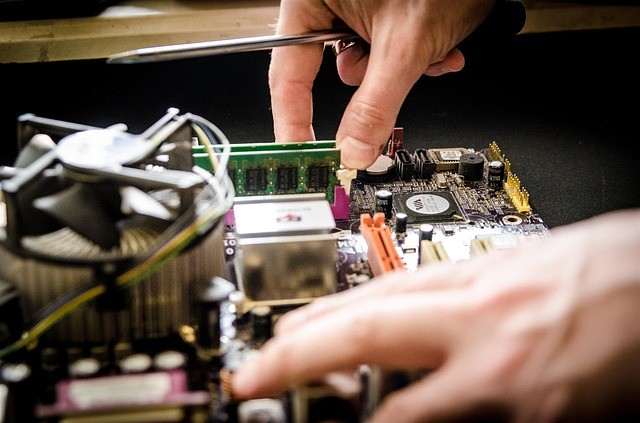Modern life has plenty of amazing conveniences, and one that we too oft take for granted is our access to computers. Now a primary means by which people learn, work and play; the maintenance and repair of computers and laptops is an essential service that many households and businesses require.
Computers and laptops have complicated and delicate internal components, meaning that there are literally thousands of different ways they could fail or become damaged. While there are thousands of specific ways these devices may need a repair, they are usually caused by similar issues that are shared between components.
In order to effectively repair a computer or laptop and stop the issue from reoccurring, you need to be able to diagnose exactly what’s wrong with it. If the problem is severe enough it may warrant hiring a professional computer repair technician or going through the warranty process with your laptop’s manufacturer.
Let’s take a look at the 3 most common reasons for computer and laptop repairs.
The computer or laptop is freezing, crashing or is just too slow

This is probably the most common of all computer issues that gets reported since it is a gradual change in the behaviour of the computer that’s easy to see occurring. If basic processes like opening a new window or performing a file search slows your computer to a halt or causes it to freeze and crash, it’s a sign that there’s something wrong with your system.
Because this issue is so broad, it also has the largest number of possible causes and solutions. In some cases all you need to do is clean the computer with a can of compressed air to get rid of dust that’s causing the internals to overheat. In other cases it may be the results of malware that’s bottlenecking your CPU output.
If you notice your computer taking a huge performance hit and can’t diagnose the issues yourself, you should contact a professional computer repair technician near you. They will be able to identify the issues, suggest fixes and perform those fixes without risking damage to the rest of your computer system.
The computer or laptop won’t turn on
The most obvious issue a computer can have is if it refuses to power on. This can seemingly happen out of the blue with the system working the night before but not powering on the next time you try to boot it.
This is usually a power supply issue and should be audibly noticeable when you hear the power supply fan failing to spin. This can often be solved by cleaning the fan blades and reseating the power supply but in other cases the whole unit may need replacing.
Make sure that the power supply in your computer is the correct wattage to support all of the components it is powering otherwise it will overload very quickly. Make sure that you seat the power supply correctly so that the air escapes out of the case, not inwards.
The computer or laptop is infected with malicious software

The most notorious cause of issues in computers and laptops comes in the forms of viruses and malware. These are pieces of malicious software that are deliberately designed to steal your information and/or destroy your computer’s files and internal architecture.
While not causing any physical harm to your computer’s components, malicious software can steal important data from you such as account logins and financial information. It can also steal your personal files and this has led to cases of people being blackmailed with their private data.
Because malicious software is designed to cause as much damage as possible, the worst damage is done before a computer technician can begin undoing the effects. While the software can be removed it is often too late to stop the worst damage from occurring.
The best way to beat malicious software is too never download it in the first place. This means being vigilant while using the internet and not clicking on any advertisements that look suspicious.
As a general rule of thumb, don’t click on banner advertisements and pop ups. If a deal looks too good to be true, it usually is and should be avoided. It is also a good idea to protect against any cyber attacks which become more comon these days.
Designers of malicious software will often rely on children and inexperienced internet users who naively click on an ad that would look suspicious to a seasoned user. Therefore it’s essential to have passwords and parental lockouts to prevent small children from accidently infecting your computer though their use of it.

